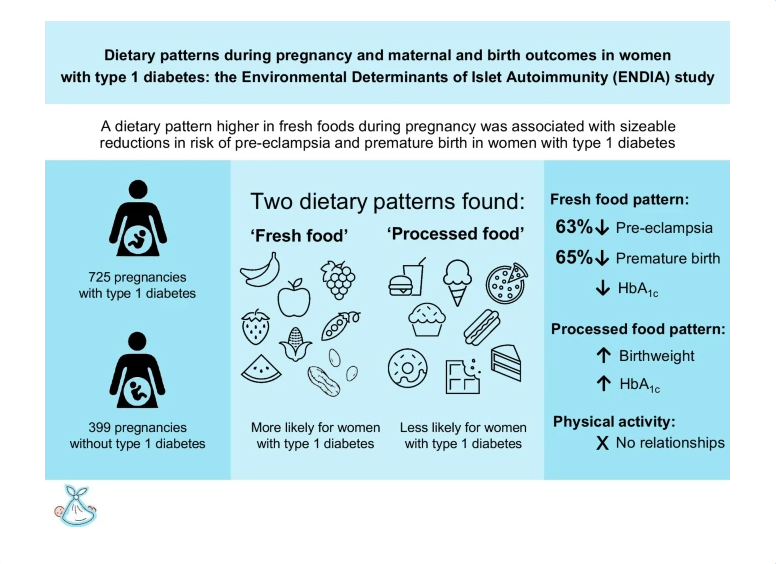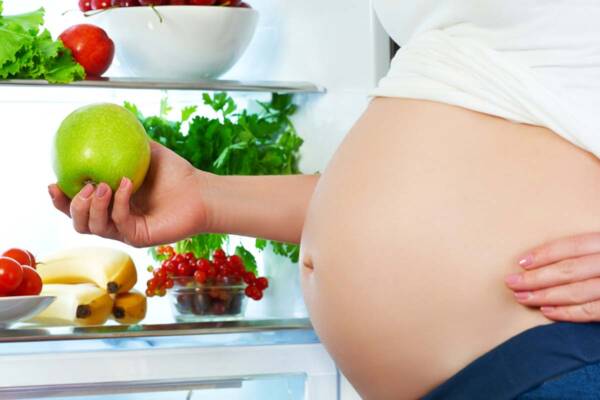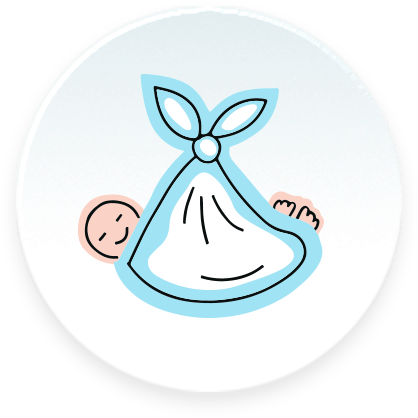Dietary patterns in pregnancy and outcomes after birth for women with type 1 diabetes
Dietary patterns in pregnancy and outcomes after birth for women with type 1 diabetes
This ENDIA Study paper investigated how nutrition and physical activity during pregnancy affect maternal health and birth outcomes in women with type 1 diabetes; women know to be at a higher risk for pregnancy-related complications.

Researchers analysed data from the diet and physical activity questionnaires completed during pregnancy from 973 ENDIA mothers (including 1124 pregnancies). We looked at all foods eaten and found two distinct dietary patterns: one higher in fresh foods, such as fruits, vegetables, and nuts; and another higher in processed foods, such as snacks, red and processed meat, pizza and refined grains.
Our team found that eating a ‘fresh food’ diet was related to significant reduction in the risk of both preeclampsia and premature birth among women with type 1 diabetes. We estimated that the risk of preeclampsia and premature birth reduced by 60% by eating 1 more serve of fruit, vegetables and lean meat, ⅓ more serve of dairy and grains, and a ¾ less serve of discretionary items or junk food.

These important findings suggest adopting a dietary pattern rich in fresh foods during pregnancy could play a crucial role in reducing the risk of preeclampsia and premature birth among women with type 1 diabetes.
Pregnancy care for women with type 1 diabetes must include the importance of fresh, unprocessed foods as a potential strategy to improve pregnancy and birth outcomes.
Access the article online via: https://rdcu.be/dTaeo

